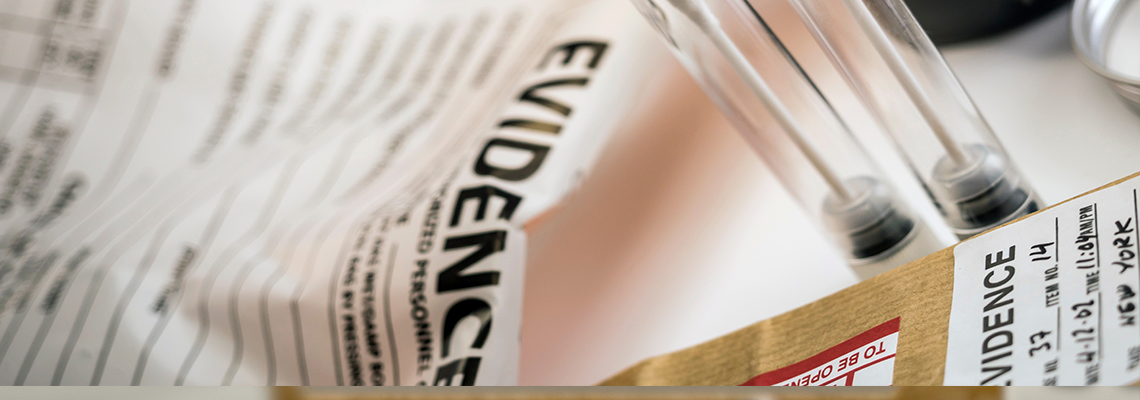
Understanding DNA Used as Evidence
In Texas, a person facing a criminal trial – after an arrest or charge – will be scheduled before a judge or jury to examine the evidence against them. DNA is one form of evidence which may be used to prove innocence or link an alleged defendant with the offense or crime scene. Considering the significant role DNA evidence plays in a criminal trial, it is imperative that you know its level of accuracy and reliability.
Attorney Phillip Linder has devoted his career to offering aggressive representation and protecting individuals facing criminal accusations from the worst possible punishments. As a strategic Texas criminal defense attorney, he can help you understand how DNA evidence may be used to prove or disprove your case and strategize an effective defense to help fight your charges. The firm proudly serves clients across Dallas, Texas, and surrounding areas throughout Dallas Metro and North Texas. Set up a consultation today.
Collecting and Preserving DNA
DNA (deoxyribonucleic acid) is a unique genetic code of each person which exists in the body’s cells. Except with identical twins, a person’s DNA is up to 99.9% different from another person’s DNA. Due to the uniqueness of the DNA sequence, it is often used as evidence in a criminal case or trial. DNA samples can be collected from the person’s skin cells, hair, semen, blood, and other bodily substances.
Furthermore, during a criminal investigation, the police will collect and preserve any biological evidence found at the crime scene, such as hair, blood, or skin cells. A reference biological sample will also be collected from the alleged suspect through a court order. Both samples will be tested in the laboratory using the PCR method. The results will be compared.
Depending on the result, the DNA testing may either connect the alleged defendant to the crime or help establish their innocence. Generally, there are strict measures for collecting, preserving, and testing DNA evidence to make sure the evidence is not compromised. DNA evidence will only be admissible during criminal trials, provided that requirements for collecting and handling the DNA samples are met.
Using DNA as Evidence
DNA testing can serve as vital evidence in a criminal case in various ways, depending on whether the alleged suspect is identified or not:
Scenario 1 – Suspect Is Identified
If the suspect is identified or arrested, the police will seek a court order to collect a biological sample (reference sample) for DNA testing. The result of the DNA analysis of the reference sample will be compared to the DNA evidence found at the crime scene.
In case both DNA analysis matches, the suspect may be prosecuted for the crime. However, this is based on the presumption that no two persons have the same DNA sequence and the chance of error is 1-in-9.7 billion.
Scenario 2 – Suspect Isn’t Identified
In the event that the police are unable to identify or apprehend the suspect, the DNA evidence found at the crime scene will be taken to the laboratory for PCR analysis. The result will be compared to existing profiles from a large database of DNA profiles.
How Effective and Accurate Is DNA Evidence?
DNA technology has helped transform how criminal cases are investigated and prosecuted. Essentially, DNA testing provides a reliable and effective approach for identifying a suspect in a criminal case. Regardless, DNA testing may not be considered 100% accurate.
Due to the difficulties involved in collecting, preserving, and testing DNA, a defense counsel may be able to challenge its accuracy during a criminal trial. This was the approach used by the defense team in the O.J. Simpson case. Against the odds, they were able to disprove the substantial DNA evidence implicating the defendant and establish his innocence.
Challenging DNA Evidence
A legal counsel may be able to challenge DNA evidence using any of these legal defenses:
DNA samples collected at the crime scene were contaminated.
Failure to follow strict guidelines for handling, labeling, preserving, and analyzing DNA samples.
No direct connection between the defendant’s DNA at the crime scene and the crime under investigation.
If someone you know is facing criminal charges and there was DNA evidence found at the crime scene or on a victim, you need to reach out to a skilled criminal defense attorney immediately. Your legal counsel can investigate every aspect of your case and determine your best defenses.
Can DNA Evidence Be Used Post-Conviction?
The use of DNA evidence doesn’t stop at criminal trials. DNA evidence can also be used post-conviction to prove a person’s innocence. According to recent statistics, about 536 people have been exonerated, since 1989, after post-conviction review of DNA evidence in their cases.
In Texas, there are various mechanisms for convicted individuals to seek DNA testing which may help establish their innocence. A skilled Texas post-conviction representation attorney can educate you about the legal processes involved and help determine the best course of action.
The Linder Firm: Experienced Counsel You Can Trust
DNA evidence can have a massive impact on the outcome of a criminal case. However, the fact that your DNA was found on the victim or at the crime scene doesn’t mean you’re automatically guilty. At The Linder Firm, Attorney Phillip Linder has the resources to defend and represent clients in their criminal cases.
As your legal counsel, he can investigate the DNA samples and help identify faults in the way the samples were handled, preserved, or analyzed. Regardless of the nature of the charges against you, Phillip will fight aggressively to uphold your legal rights and attempt to establish your innocence. He will help you navigate the Texas criminal justice system in pursuit of the most favorable outcome for your unique situation.
Contact The Linder Firm today to schedule a simple case assessment with a dependable criminal defense lawyer. The firm is proud to serve clients across Dallas, Texas, and surrounding areas throughout Dallas Metro and North Texas.
